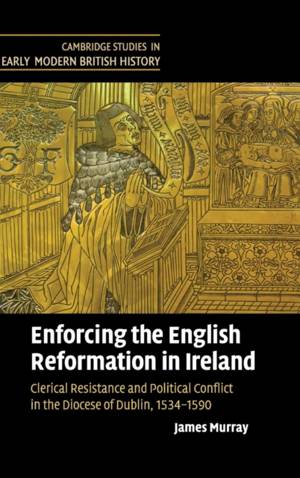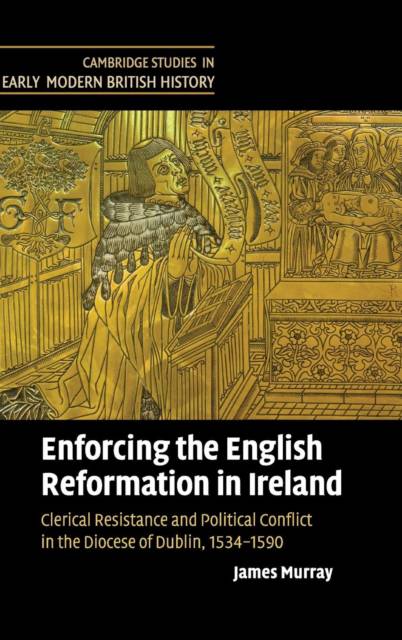
- Afhalen na 1 uur in een winkel met voorraad
- Gratis thuislevering in België vanaf € 30
- Ruim aanbod met 7 miljoen producten
- Afhalen na 1 uur in een winkel met voorraad
- Gratis thuislevering in België vanaf € 30
- Ruim aanbod met 7 miljoen producten
Zoeken
Enforcing the English Reformation in Ireland
Clerical Resistance and Political Conflict in the Diocese of Dublin, 1534–1590
James Murray
€ 194,95
+ 389 punten
Uitvoering
Omschrijving
This book explores the enforcement of the English Reformation in the heartland of English Ireland during the sixteenth century. Focusing on the diocese of Dublin - the central ecclesiastical unit of the Pale - James Murray explains why the various initiatives undertaken by the reforming archbishops of Dublin, and several of the Tudor viceroys, to secure the allegiance of the indigenous community to the established Church ultimately failed. Led by its clergy, the Pale's loyal colonial community ultimately rejected the Reformation and Protestantism because it perceived them to be irreconcilable with its own traditional English culture and medieval Catholic identity. Dr Murray identifies the Marian period, and the opening decade of Elizabeth I's reign, as the crucial times during which this attachment to survivalist Catholicism solidified, and became a sufficiently powerful ideological force to stand against the theological and liturgical innovations advanced by the Protestant reformers.
Specificaties
Betrokkenen
- Auteur(s):
- Uitgeverij:
Inhoud
- Aantal bladzijden:
- 370
- Taal:
- Engels
- Reeks:
Eigenschappen
- Productcode (EAN):
- 9780521770385
- Verschijningsdatum:
- 2/03/2009
- Uitvoering:
- Hardcover
- Formaat:
- Genaaid
- Afmetingen:
- 155 mm x 231 mm
- Gewicht:
- 725 g

Alleen bij Standaard Boekhandel
+ 389 punten op je klantenkaart van Standaard Boekhandel
Beoordelingen
We publiceren alleen reviews die voldoen aan de voorwaarden voor reviews. Bekijk onze voorwaarden voor reviews.











